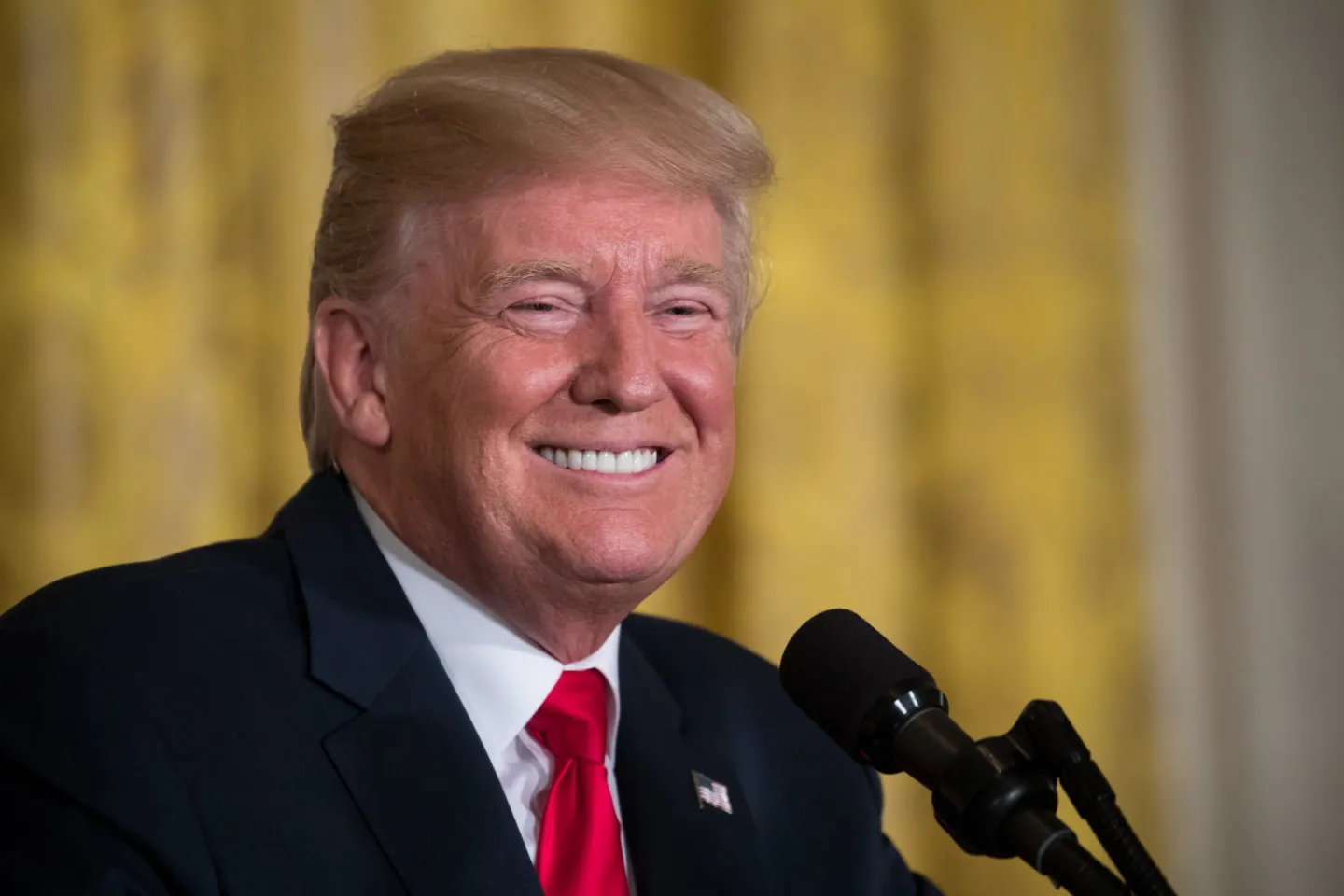The U.S. Senate has delivered a significant legal victory to President Donald Trump’s second administration, confirming two new federal appellate judges in the same week—both to courts long dominated by Democratic-appointed majorities. The confirmations mark a major shift in the balance of judicial power across the northeastern and western United States, and they represent the administration’s latest attempt to reshape the federal judiciary for decades to come.
On Tuesday, the Senate voted 52–46 to confirm Joshua Dunlap, a Maine-based conservative attorney, to the 1st U.S. Circuit Court of Appeals. The confirmation is historic: Until now, the 1st Circuit was the only federal appeals court without a single active Republican-appointed judge.
Just days earlier, the Senate confirmed Eric Tung, a former clerk to Justices Neil Gorsuch and the late Antonin Scalia, in a 52–45 vote to the 9th U.S. Circuit Court of Appeals, another influential appellate court known for its longstanding liberal tilt.
Together, the decisions signal an unmistakable theme of Trump’s renewed judicial strategy: take aim at the circuits traditionally relied upon by Democratic litigators to block Republican policy.
A Conservative Breakthrough in the 1st Circuit
The confirmation of Joshua Dunlap ends a decades-long pattern in which Democrats controlled every active appointment on the Boston-based 1st Circuit, which oversees federal appeals from Maine, Massachusetts, Rhode Island, New Hampshire, and Puerto Rico.
This court has long served as a favored venue for Democratic attorneys general and progressive advocacy groups, who frequently sought injunctions against Trump-era policies—particularly during his first term from 2017 to 2021. It was the last remaining appellate bench without a Republican-appointed judge.
Trump was unable to appoint anyone to this court during his first term. The opportunity arose only because of a transitional political misfire: President Biden attempted to fill the vacancy by nominating attorney Julia Lipez, but her confirmation stalled in the Senate.
The seat opened after Judge William Kayatta, an Obama appointee, transitioned to senior status in October 2024—just days before Trump won the presidential election. Once Biden’s nominee expired, Trump gained the authority to select the successor.
Who Is Joshua Dunlap?
Dunlap, a partner at the Maine law firm Pierce Atwood, has built his legal career around cases involving constitutional interpretation, election rules, and state-level regulatory challenges. He holds degrees from Pensacola Christian College and Notre Dame Law School, where he graduated in 2008.
While in law school, Dunlap interned with the Alliance Defending Freedom—a conservative Christian legal rights group known for its involvement in religious liberty and First Amendment cases.
His legal work includes:
-
Challenging Maine’s paid family and medical leave program
-
Contesting campaign finance regulations
-
Opposing the state’s adoption of ranked-choice voting
These issues have placed him squarely within the constellation of conservative legal advocacy.
During his nomination announcement in July, Trump praised Dunlap as someone who would “fearlessly defend our Constitution,” framing the appointment as critical to restoring ideological balance in New England’s judiciary.
The Senate’s Vote and Political Context
The confirmation vote divided neatly along party lines. All Senate Republicans supported Dunlap, while all Democrats opposed.
Democrats warned that Dunlap’s background signaled a sharp rightward turn for the circuit, potentially jeopardizing rulings related to civil rights, federal regulatory authority, environmental standards, and election law.
Republicans countered that ideological diversity on appellate courts is essential, especially in circuits where one-party dominance has lasted for decades.
The appointment is particularly meaningful to conservatives because the 1st Circuit has, in recent years, ruled against several Trump-era immigration actions and federal regulatory rollbacks.
Trump Scores Another Win with 9th Circuit Confirmation
As the news of Dunlap’s confirmation spread, the Senate finalized a second judicial victory: the confirmation of Eric Tung, a Los Angeles-based partner at Jones Day, to the San Francisco-based 9th Circuit.
The 9th Circuit has long been considered the most liberal appellate court in the country. Though Trump appointed ten judges to the court during his first term, Democratic appointees still hold a slim majority at 16–13, even after Tung’s addition.
The seat became available after Judge Sandra Segal Ikuta—herself a George W. Bush appointee—announced she would step down upon confirmation of a successor.
Trump nominated Tung in July, calling him a “Tough Patriot” who would uphold the rule of law in what he described as “the most RADICAL, Leftist States,” referencing the court’s jurisdiction over California, Oregon, and Washington.
Who Is Eric Tung?
Eric Tung’s résumé aligns tightly with the conservative legal movement.
He clerked twice for Justice Neil Gorsuch—once when Gorsuch sat on the 10th Circuit and again after he joined the Supreme Court. Tung also clerked for the late Justice Antonin Scalia, one of the foremost conservative legal thinkers of the modern era.
His career includes:
-
Work as a federal prosecutor
-
Service within the Department of Justice
-
Representation of corporate and government clients at Jones Day
The Senate confirmed Tung 52–45, again along near-perfect party lines.
How These Confirmations Shift the Judiciary
While neither confirmation flips the ideological control of their respective courts, they significantly reduce the dominance of Democratic-appointed judges.
First Circuit Impact
The 1st Circuit now includes one Republican-appointed judge for the first time in modern history. More importantly, several judges are nearing retirement age, meaning additional vacancies are likely during Trump’s second term.
Ninth Circuit Impact
Tung’s appointment narrows the Democratic majority and ensures that conservative dissents (or coalitions) are more philosophically aligned with the Supreme Court’s right-leaning majority.
This matters because the Supreme Court reviews cases more frequently from the 9th Circuit than any other appellate court—often reversing liberal-leaning rulings.
Democratic Concerns and Republican Celebration
Democrats sharply criticized both confirmations, calling them part of a broader effort to push the federal judiciary far to the right. They argue the judges’ affiliations and legal backgrounds suggest rulings that will weaken abortion protections, expand executive authority, restrict environmental regulations, and limit federal oversight of state election laws.
Republicans, on the other hand, celebrated the confirmations as overdue corrections to circuits they say were ideologically imbalanced for too long.
Why These Courts Matter Politically
Both circuits have been central battlegrounds in litigation over:
-
Immigration restrictions
-
Federal drug enforcement
-
Climate regulations
-
Executive power
-
First Amendment cases
-
Election-related disputes
The 1st Circuit has frequently blocked Trump-era policies, while the 9th Circuit became iconic for Democratic attorneys general seeking nationwide injunctions during 2017–2021.
With these new appointments, conservative litigators gain more favorable terrain—and liberal legal groups lose two reliable jurisdictions.
Looking Ahead
With more judicial vacancies expected across multiple circuits, Trump is poised to continue reshaping the federal bench during his second term. Majority Leader Steve Daines has signaled that judicial confirmations will remain a top Republican priority.
If additional vacancies appear in the 1st or 9th Circuits, Trump could potentially tip the ideological balance of either court—a transformation that would reverberate across national policy for decades.

Sarah Mitchell is a bestselling novelist recognized for her insightful and emotionally resonant stories that explore the complexities of human relationships. Originally from Denver, Colorado, Sarah grew up in a family of teachers who nurtured her curiosity and love for storytelling. She studied psychology at Stanford University, where she became fascinated by the intricacies of human behavior—an interest that would later shape her writing career. Sarah’s novels are praised for their nuanced characters, intricate plots, and ability to capture the subtle tensions that define love, friendship, and family ties. Her breakthrough novel, The Spaces Between Us, became an instant bestseller, lauded for its honest portrayal of strained family relationships and the fragile bonds that hold people together. Since then, she has published several works that continue to captivate audiences around the world. Outside of her writing career, Sarah is passionate about mental health advocacy and often partners with organizations to promote awareness and support for those struggling with emotional well-being. Her personal life is quieter—she enjoys hiking in the Colorado mountains, practicing yoga, and spending time with close friends. With each new book, Sarah Mitchell cements her reputation as a writer who illuminates the beauty and struggles of human connection.









